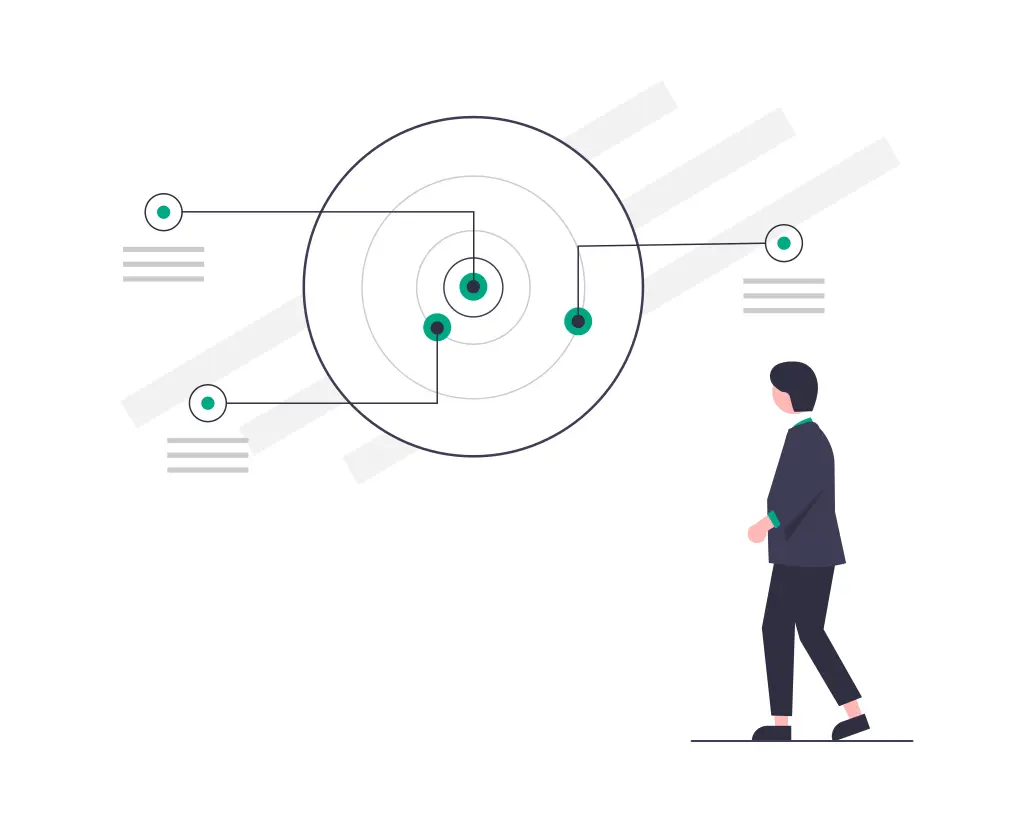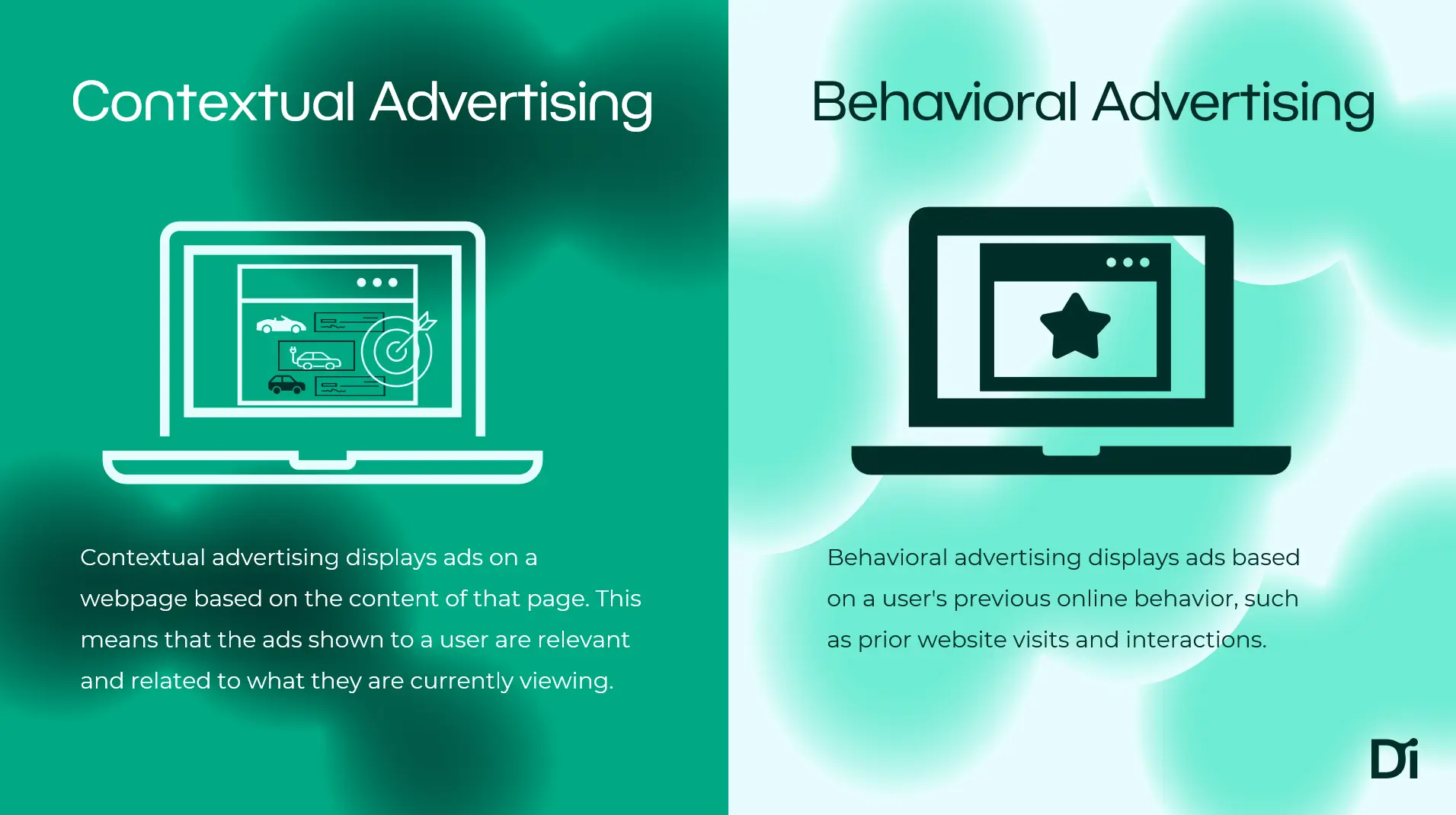Maximizing Advertising Performance through Contextual Targeting


Contextual advertising is becoming more important in digital advertising. The upcoming removal of third-party cookies is leading to a focus on privacy-focused advertising strategies.
Contextual advertising shows ads on a webpage based on the content. It helps deliver relevant ads to users. We will discuss how technology helps make ads more accurate by targeting specific contexts.
As technology improves, marketers need to find ways to reach their target audience more effectively. Contextual advertising shows ads on a web page based on the content, making them more relevant to users.
In this blog article, we will explore the strategies, benefits and best practices of contextual advertising. How to maximize the effectiveness of your advertising using contextual targeting. The article will also explore future perspectives and trends in contextual advertising, including the impact of privacy regulations on digital marketing strategies.
Contextual advertising has been around for a while. However, in the digital age, it has been overshadowed by third-party cookies and audience targeting.
In the past, advertisers chose publishers to show their ads next to related content. This way, they could reach people who were truly interested in their products or services.
In the past, advertising focused on the content rather than personal data. Now, this approach is making a comeback because of privacy worries and the decrease in user tracking methods.
Contextual advertising has evolved to integrate new capabilities, such as audience segmentation and behavioral insights, to increase advertising effectiveness and engagement.
Even though technology is changing how ads are targeted, the main idea behind contextual advertising stays the same. Putting ads where they are most likely to interest the audience based on their current activities.

Contextual advertising differs essentially from behavioral advertising in the targeting mechanism used. Behavioral advertising uses a user's previous online behavior, such as previous visits to a website and interactions. In contrast, contextual advertising focuses only on the content of the web page the user is currently viewing.
When someone reads an article about a new car, ads for car sellers or leasing may appear. This can happen even if the person has never shown interest in cars before.
Behavioral advertising uses cookies to track user activity across sites and create a detailed profile. This allows for personalized ads based on the user's interests and past behavior.
This distinction is crucial in today's digital environment, where privacy concerns are changing the way advertisers reach their audience. Contextual advertising respects privacy by not using personal data or tracking users online, following new regulations. This type of advertising is a good alternative as restrictions on personal data use and third-party cookies increase.
Thus, in contrast to behavioral advertising, contextual advertising aligns advertising with the user's immediate content experience, without delving into their personal browsing history.

Contextual segmentation involves grouping a publisher's content into categories that can then be targeted with specific ads. Publishers use the IAB Content Taxonomy, an industry standard, to organize their content for better quality and segmentation.
Publishers use this standard to categorize their content for advertisers. This helps create targeted ads based on interests or topics. The ads are not based on general demographics or behaviors.
Digital Matter provides contextual segmentation tools that allow advertisers to use sophisticated algorithms and data analytics to match advertising with the most relevant content.

Building on the historical foundations of contextual advertising, recent advances have significantly increased its effectiveness and attractiveness to marketers. Contextual targeted advertising allows reaching audiences when they are most receptive to the message, making it a key benefit.
Timing is important for ads to be relevant to users' interests and activities, increasing engagement. Privacy concerns are growing. Restrictions on third-party cookies are looming. Contextual targeting offers a solution. It does not require personal user data.
Machine learning and artificial intelligence have improved contextual targeting, making ads more effective by delivering high-quality, relevant, and timely content.
This new advertising method allows marketers to create campaigns that are customized to user engagement without invading user privacy.

The effectiveness of contextual targeting in increasing ad relevance and engagement can not be overstated. Contextual advertising blends content and ads seamlessly by using the user's browsing environment. This creates a natural and less disruptive experience for the user.
The ads are tailored to fit the context of the user's online activity. This makes them more relevant and engaging. The goal is to make the advertising feel like a natural part of the user's online experience.
This brand protection strategy involves displaying ads that are relevant to the content being viewed by users. This helps to meet their immediate online needs and keeps them engaged.
The use of contextual relevant advertising leads to better performance metrics such as click-through rates and conversions. These are important indicators of user interest and the success of the advertising call to action. Watching ads that match the content being viewed can make the experience more enjoyable for users.
Therefore, using contextual targeted ads without relying on individual user data can help advertisers increase relevance and engagement effectively.
Digital Matter can assist advertisers and publishers in getting started with contextual targeting and segmentation.
Publishers who work with us are connected to our contextual advertising network. We analyze their content and categorize their content by topics, sentiment and other relevant factors. After that, we create segments based on these categories and tailor them to specific advertising objectives.
Digital Matter specializes in creating targeted content segments for advertising companies. These segments are made to reach people who like the content, making sure the ad campaign works well. Throughout the campaign, Digital Matter monitors performance, analyzes the contextual relevance of ads, and measures user engagement, making continuous optimizations to improve overall performance.
Privacy Compliance: By not relying on personal data, contextual advertising aligns with global privacy regulations and consumer expectations for data protection.
Better user experience: Ads that match the content are less annoying and more likely to be accepted by the audience.
Improved Engagement Rates: Contextual relevant ads are more engaging, leading to higher click-through rates and better campaign performance.
Simplicity and Efficiency: Without the need for user data, contextual advertising simplifies the ad placement process and reduces the dependency on tracking technologies.
Contextual advertising will become a key strategy in the digital advertising industry once third-party cookies are deprecated. It helps to keep ads relevant and effective and prioritize content context over personal data. By doing so, it offers the ability to engage audiences while still respecting privacy requirements.
Digital Matter helps publishers and advertisers succeed in digital marketing through contextual advertising in the new era.